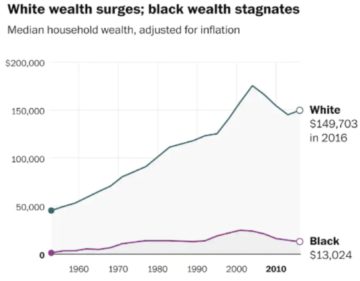Phillip Meylan in The Factual:
 To mark 100 years since the Tulsa Massacre, President Biden recently visited Tulsa and decried the day’s tragic events. Beginning on May 31, 1921, groups of white men, reacting to a claim that a Black man attacked a white woman (later revealed to be false), began shooting Black residents and burning down businesses on Tulsa’s Black Wall Street. This led to some 300 deaths and the leveling of what had been the richest Black neighborhood in the U.S. Now, a century later, the area still shows scars, both from the massacre and from subsequent policies that frustrated the revitalization of the area.
To mark 100 years since the Tulsa Massacre, President Biden recently visited Tulsa and decried the day’s tragic events. Beginning on May 31, 1921, groups of white men, reacting to a claim that a Black man attacked a white woman (later revealed to be false), began shooting Black residents and burning down businesses on Tulsa’s Black Wall Street. This led to some 300 deaths and the leveling of what had been the richest Black neighborhood in the U.S. Now, a century later, the area still shows scars, both from the massacre and from subsequent policies that frustrated the revitalization of the area.
The event has once more brought the question of reparations for Black Americans — both for slavery and for discriminatory policies long after abolition — to the forefront of public discussion, with many anticipating movement under the Biden administration to, at the very least, form a commission to formally study the situation and make recommendations. The question of whether reparations should be made, and how to make them, are both complex and contested. The idea remains fairly unpopular with Americans — 53% of Democrats support the idea, while just 6% of Republicans do; likewise, around three-quarters of Black respondents support reparations, compared to just 15% of white respondents.
More here.
